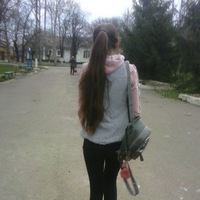
Определить род имен существительных:вредители лесники кормушки светлячок старик плоты луга
 0
0
 0
0
Ответы на вопрос
 Внимание! Ответы на вопросы дают живые люди. Они могут содержать ошибочную информацию, заблуждения, а также ответы могут быть сгенерированы нейросетями. Будьте внимательны. Если вы уверены, что ответ неверный, нажмите кнопку "Пожаловаться" под ответом.
Внимание! Ответы на вопросы дают живые люди. Они могут содержать ошибочную информацию, заблуждения, а также ответы могут быть сгенерированы нейросетями. Будьте внимательны. Если вы уверены, что ответ неверный, нажмите кнопку "Пожаловаться" под ответом.

Лесники: муж.род(он)
Кормушки: жен.род(она)
Светлячок: муж.род(он)
Старик: муж.род(он)
Плоты: муж.род (он)
Луга: муж. род (он)
 0
0
 0
0

лесник - м.р.
кормушка - ж.р.
светлячок - м.р.
старик - м.р.
плоты - м.р
луг - м.р.
 0
0
 0
0

Determining the Gender of Nouns
To determine the gender of the given nouns, let's analyze each one individually.1. вредители (vrediteli) - This noun is in the plural form and does not have a specific gender in Russian. It refers to "pests" or "vermin" in English, and as a plural noun, it does not have a singular form with a specific gender. Therefore, it does not have a gender in the traditional sense.
2. лесники (lesniki) - This noun is in the plural form and does not have a specific gender in Russian. It refers to "foresters" or "rangers" in English, and as a plural noun, it does not have a singular form with a specific gender. Therefore, it does not have a gender in the traditional sense.
3. кормушки (kormushki) - This noun is in the plural form and does not have a specific gender in Russian. It refers to "feeders" or "troughs" in English, and as a plural noun, it does not have a singular form with a specific gender. Therefore, it does not have a gender in the traditional sense.
4. светлячок (svetlyachok) - This noun is in the masculine gender. It refers to "firefly" in English and is a diminutive form of the masculine noun "светляк" (svetlyak).
5. старик (starik) - This noun is in the masculine gender. It refers to "old man" or "elderly man" in English and is a masculine singular noun.
6. плоты (ploty) - This noun is in the plural form and does not have a specific gender in Russian. It refers to "rafts" in English, and as a plural noun, it does not have a singular form with a specific gender. Therefore, it does not have a gender in the traditional sense.
7. луга (luga) - This noun is in the plural form and does not have a specific gender in Russian. It refers to "meadows" in English, and as a plural noun, it does not have a singular form with a specific gender. Therefore, it does not have a gender in the traditional sense.
In summary, out of the given nouns, светлячок (svetlyachok) and старик (starik) are in the masculine gender, while the rest are either in the plural form or do not have a specific gender in Russian.
 0
0
 0
0
Топ вопросов за вчера в категории Русский язык
Последние заданные вопросы в категории Русский язык






-
Математика
-
Литература
-
Алгебра
-
Русский язык
-
Геометрия
-
Английский язык
-
Химия
-
Физика
-
Биология
-
Другие предметы
-
История
-
Обществознание
-
Окружающий мир
-
География
-
Українська мова
-
Информатика
-
Українська література
-
Қазақ тiлi
-
Экономика
-
Музыка
-
Право
-
Беларуская мова
-
Французский язык
-
Немецкий язык
-
МХК
-
ОБЖ
-
Психология
-
Физкультура и спорт
-
Астрономия
-
Кыргыз тили
-
Оʻzbek tili















